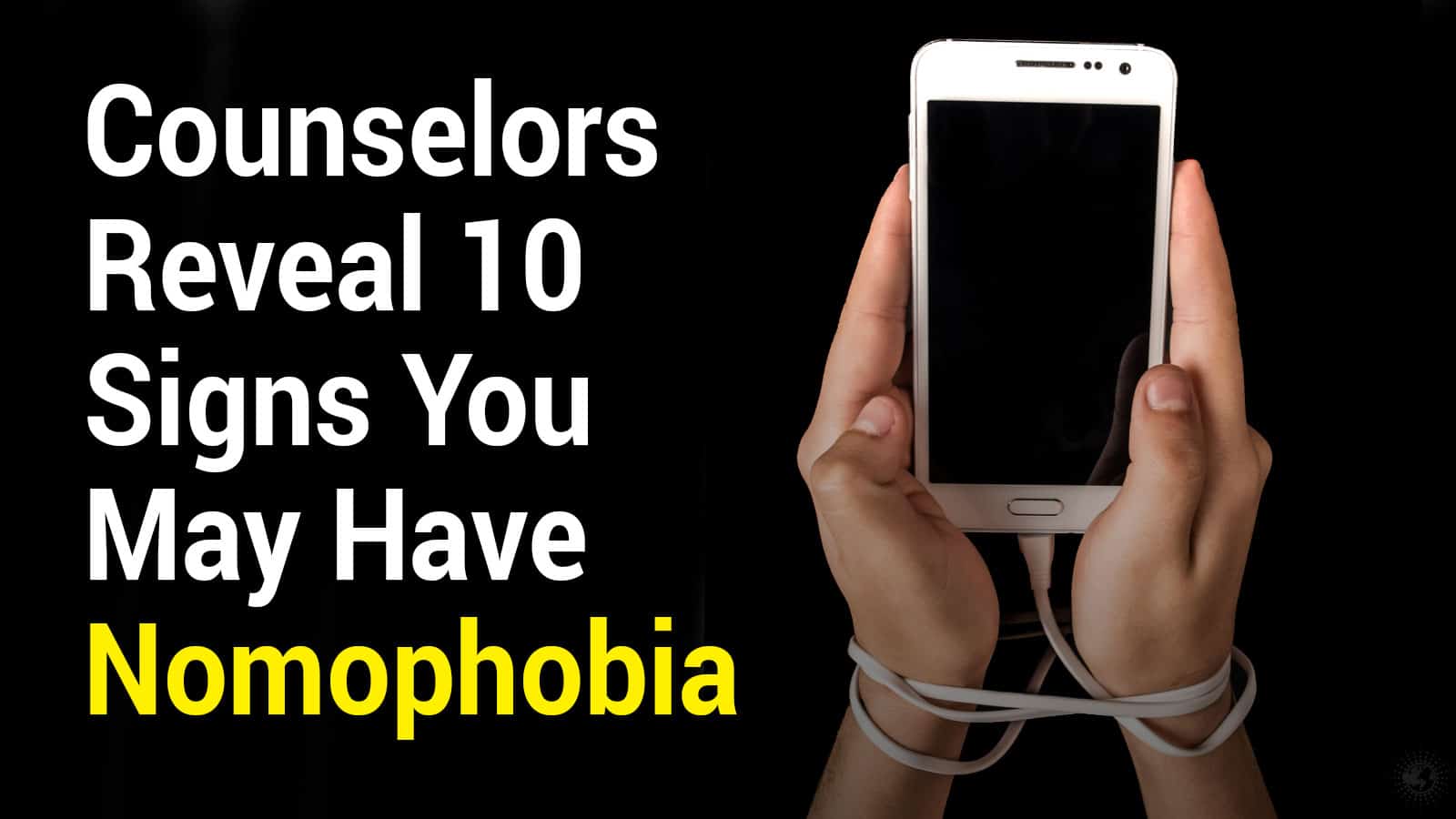We live in an age of booming technology, and it’s only becoming more and more advanced. The world we live in is forever shaped by the internet, accessibility, and modern communication methods. It’s so ingrained into the planet as we know it that it’s no longer possible to separate tech from life in any way. Still, we feel isolated in an entirely new way.
Some generations are now growing up, never having known a world without smartphones. Screen time is a staple of everyday life, and that’s not really surprising. Smartphones, tablets, and other mobile devices offer a wealth of information in mere seconds, long-distance communication, and entertainment.
With these developments have come new concerns surrounding health, wellness, and development. How much screen time is too much? And how much connectivity is excessive? How much can you share with the world before it becomes dangerous? Ideally, mobile devices bring us closer together by connecting us all. But is that really the reality, or have we overdone it to the point that it’s counterproductive?
These questions have complex answers, but many of them seem surprising. This increased access to the world is actually causing more and more people to be alone, although they can be connected to everyone all the time. How is this possible, and why?
Here are 4 ways too much screen time can make you feel isolated.
1. You Can Become Addicted
The internet is full of fun. There’s no way to deny the hours of activities you can partake in just from one screen, and that truly is something to marvel at. Unfortunately, with that comes its fair share of consequences.
Internet addiction is a relatively new research area, given the relatively recent and fast developments of accessibility and connectivity as a whole. Still, it’s enough for many people to get a good idea of what is positive and what is negative regarding their attachment to technology.
Addiction is a very isolating experience. There’s a lot of stigma surrounding it as a concept, and it’s even worse for a newer form of addiction that is still less understood. It’s easy to dismiss any signs of addiction to a mobile device because of how commonplace our dependence on such items is.
Unfortunately, devices and internet addiction are genuine problems. Like other forms of addiction, it can cause you to push away your loved ones and hurt those around you due to your obsession, further isolating you.
Here are some signs of internet – and, additionally, mobile device – addiction.
- Higher levels of tolerance for mobile devices and internet activities.
- Difficulty in reducing or self-regulating mobile devices and internet use.
- Constant preoccupation or obsession with mobile devices and the internet.
- Reliance on mobile devices and the internet to manage stress, anxiety, depression, and negative emotion.
- The existence of withdrawal symptoms when away from mobile devices and the internet.
- Psychological dependence on mobile devices and the internet.
- Replacement of regular activities and/or relationships with activities related to mobile devices and the internet, despite knowledge of the negativity of such replacements.
But how does this type of addiction happen? It can seem a little puzzling, given the way we usually think of addiction.
Here’s some information about the internet and screen addiction development.
- Certain things on the internet give you a hit of dopamine, triggering your reward system to associate the internet with these very brief feeling of happiness. This can occur from a ‘like’ on social media, playing a mobile game, or simply seeing people you relate to.
- The internet provides a certain sense of belonging, even to those who struggle to make friends in real life. There’s a community for just about anyone on the internet. With factors like anonymity, it’s easy to hop between friend groups, presenting yourself as you wish, for the best responses.
- It’s easy to build a fake persona online. You can present only the very best of yourself and then begin to prefer that embellished version of you to who you truly are. Since that “perfect” you doesn’t exist outside of your mobile devices, it can be tough to go back to real life when you can’t measure up to your own precedents.
2. You Spend More Time Isolated
Ironically, being so connected to everyone all the time can wind up isolating you even further. It’s a difficult concept to wrap your head around, but think about it – how often are you enjoying screen time with others? The answer is likely not as much as how often you participate in device activities at home on your own!
Here are some other reasons you wind up spending more time alone when you indulge in a lot of screen time:
- With the ability to talk to anyone in the world right at your fingertips, you have less reason to go out and socially interact in person with others.
- You learn updates of other people’s lives through their social media without ever needing to communicate with them.
- You’re more aware of the lives of others, constantly shared on social media, so you know when you’re left out.
- You spend more time checking your phone, which has many options for things you can do and therefore interact with the world around you less.
Here are some interesting scientific findings on screen time, isolation, loneliness, and its effects:
- “People Thinking About People: The Vicious Cycle of Being a Social Outcast in One’s Own Mind” in The social outcast: ostracism, social exclusion, rejection, and bullying (2005). This portion of a book on the social outcast discussed an interesting study where people were hypnotized by a professional hypnotist to experience sensations of loneliness. That loneliness trigger was enough to directly lead to significant increases in depression symptoms and very drastic drops in positive thinking.
- “Loneliness Matters: A Theoretical and Empirical Review of Consequences and Mechanisms” in Annals of Behavioral Medicine (2013). This experiment revealed that the stress hormone, cortisol, increases in production when you feel lonely. In fact, the stress levels from loneliness can be comparable to receiving a direct physical threat!
- “iGen: Why Today’s Super-Connected Kids Are Growing Up Less Rebellious, More Tolerant, Less Happy–and Completely Unprepared for Adulthood–and What That Means for the Rest of Us” by Jean Twenge, Ph.D. (2017). This book talks in-depth about the newer generation of children growing up with technology. It scientifically discusses how this generation feels lonelier than previous ones, despite their closer online connections. In 2015, data collected indicated a 27% and 48% increase in boys and girls, respectively, who felt excluded and left out than in 2010. Peers of the author seem to agree with these findings.
3. You Don’t Get Social Practice
There is no real substitute for real-world, physical contact with someone. You can’t sharpen social skills, pick up proper social skills, or learn how to carry yourself. Nor can you pick up on a person’s mannerisms unless you spend time with someone in-person.
The problem with interactions separated by a screen is how vastly different they are to real-life experiences. Here are some ways that internet communication can socially stunt you:
- Have time to think about your responses for several minutes or even hours before replying to someone
- May feel emboldened and protected by the screen, allowing you only to feel comfortable speaking your mind online.
- Don’t get someone’s tone, body language, or facial expressions from online text-based communications, and emojis are extremely easy to interpret in comparison
Naturally, when you go to the real world and don’t have the “easy mode” of socialization that comes with screens and social media to help you, you may fumble and become anxious. That’s why it’s important to make sure you’re still socializing in real life, too.
4. It Increases Materialism
Materialism is an incredibly isolating way of thinking. It reduces a lot of the world to mere figures and currency values. Indeed, it makes it harder to relate to people and situations. Unfortunately, a lot of screen time can often make you more materialistic. Here are some reasons for this:
- You see, many people sharing their material items on social media in attractive ways, which can influence your thoughts.
- Brand advertisements are everywhere, on all websites, often well-integrated into the interface.
- You are more likely to have an individualistic view of the world via social media than a community-based one.
- Trends are common on the internet, and many trends involve purchasing and showing off material items that change from week to week.
- Not having what others have and being unable to bond with them can cause you to feel isolated or separated.
- It’s easy to think that the online community would accept you if you have material items.
Materialism is on the rise, and unfortunately, it isn’t harmless, according to studies. Materialistic individuals often wind up experiencing anxiety or depression symptoms, failing to develop any meaningful values, or feeling empty and lonely due to an inability to afford these material things.
Final Thoughts On How Too Much Screen Time Can Make You Feel Isolated
It’s truly ironic to think that something designed to bring people close together can actually separate us all even more. Despite the rather poetic drama of it all, though, one can’t deny that screen time is a convenient way to occupy oneself, keep up-to-date on the news, and stay in touch with distant friends and family.
So how do you strike a balance between being social and isolated? How can you still use your screens without driving yourself into loneliness? How can The answer, as always, lies in moderation. Make sure that screens don’t replace real-life meetings with friends. Limit your viewing of the more toxic aspects of social media. Be realistic about the things you see online.
If you struggle with balancing your screen time, you may want to speak to a therapist or relevant medical professional dealing in mental health. This is especially true if you think you may be struggling with an addiction to social media or the internet. If you really need to, don’t be afraid to quit social media and use your phone for non-social forms of entertainment. That way, you can get the fun of screen time and have more excuses to meet your loved ones in person.

















 Community
Community

